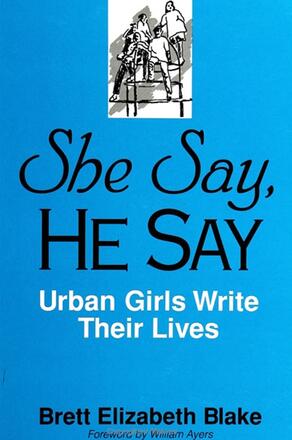
She Say, He Say
Urban Girls Write Their Lives
Alternative formats available from:
Examines public and private writings of low-income, urban, pre-adolescent girls, illuminating ways that girls' voices are often silenced in schools and society.
Description
She Say, He Say reveals the development of fifth-grade urban girls' voices through their own writing in the classroom. This book underscores the importance of including all of the girls' voices into the curriculum where their voices can be nurtured, cultured, and responded to in potentially productive ways.
Through an exploration of two major writing contexts, the public and the private, Brett Elizabeth Blake chronicles how the girls learned through their writing not only how to name issues salient to them, such as domesticity and racism, but also how to resist the underlying notions of such important issues. The girls' stories are based on nearly three years of study, and the traditional notion of a process approach to writing is challenged by addressing how such an approach must become a site for significant tension and struggle over issues like ownership and voice. Blake suggests several curricular strategies, such as reader response techniques and a violence-prevention unit, as additional approaches that support girls' voices. This book explores and challenges us to look more closely at how the intersection of gender, race, and class is crucial for understanding not only how and what girls write about, but also why they write so deliberately and poignantly about their lives.
Brett Elizabeth Blake is Assistant Professor and Director of the Graduate Teaching English to Speakers of Other Languages (TESOL) Program at Nazareth College.
Reviews
"The author captures the reality and depth of students' lives. The writings reveal that the students can be encouraged to write about their struggles and therefore make the educational system relevant. The notion of encouraging students to write and create their own 'cultural contexts' is an important one. Blake's examination of student writing on issues of gender, race, and class is admirable and can contribute to peaceful solutions. " — Aurelia Davila de Silva, University of Texas—San Antonio